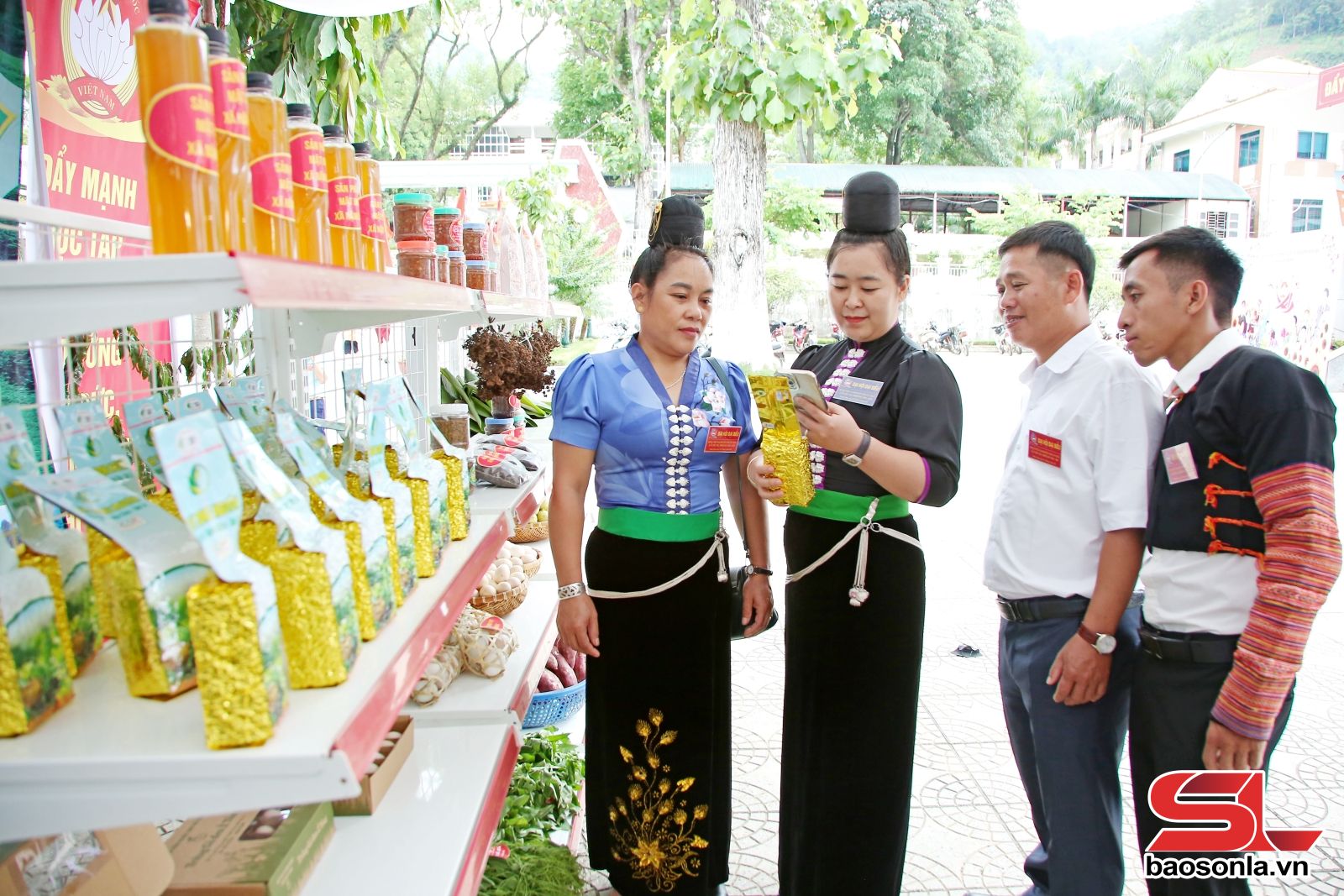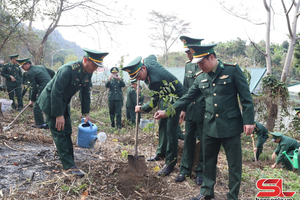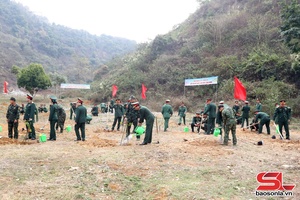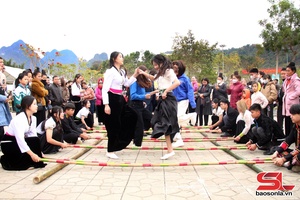
QR code is utilised to trace origin of “Trong Nguyen – Phong Lai Thuan Chau Tea”.
Leveraging local advantages, Phong Lai commune has made tea its core economic crop. Since 2018, the “Phong Lai Thuan Chau Tea” brand has been recognised, covering more than 600 hectares, generating jobs for over 2,000 workers, helping reduce poverty and improve livelihoods.
Nguyen Thi Binh, Deputy Director of Binh Thuan Cooperative, said the co-op has built on the “Phong Lai Tea” brand to develop “Trong Nguyen – Phong Lai Thuan Chau Tea”, which earned a four-star provincial One Commune One Product (OCOP) status in 2019 and was recognised as a national exemplary rural industrial product in 2021.
To maintain the brand, the cooperative has guided farmers toward organic cultivation, applied modern technology, expanded raw material areas to nearly 500 hectares, and partnered with more than 400 tea-farming households within and beyond the province. Each year, the co-op processes 400–500 tonnes of finished tea for export to Taiwan (China).
In 2017, the Intellectual Property Office of Vietnam (IP Vietnam) granted geographical indication (GI) certification for Son La coffee, creating a new competitive edge. Bich Thao Coffee Cooperative is among eight entities authorised to use the GI.
Nguyen Xuan Thao, the co-op’s director, said the certification marked a turning point, enabling the co-op to move beyond procurement, preliminary processing, and entrusted exports to directly shipping green coffee beans abroad. Since 2019, the cooperative has partnered with hundreds of households to develop nearly 1,000 hectares of raw material zones for specialty coffee, supplying demanding markets including the EU, Japan, and the Republic of Korea.
The co-op has also rolled out two OCOP products: pure ground coffee, the province’s only product to achieve a five-star national rating, and coffee husk tea, which earned a four-star provincial product status.

A booth showcases Ta Xua tea OCOP products by Tay Bac Tea & Specialty Co. Ltd.
Recognising that clear labels and traceable origins are key to competitiveness, Son La has in recent years rolled out measures to protect trademarks and geographical indications, while promoting brand development tied to localities and the OCOP programme.
Cam Thi Phong, Deputy Director of the provincial Department of Agriculture and Environment, said brand building goes hand in hand with improving quality. The province has advanced organic farming, established nine high-tech farming zones, secured 216 planting area codes and eight packing facility codes for exports of crops such as longan, mango, macadamia, and passion fruit, covering more than 3,140 hectares.
Son La has also attracted investment in building 560 processing plants and facilities. The province now counts 214 OCOP products and maintains 262 safe agricultural supply chains, generating jobs for over 11,000 workers and reinforcing the position of its farm produce in the market.

Trade promotion activities, both at home and abroad, have been carried out in a coordinated and diversified manner, enabling companies and cooperatives to expand their markets. Digital transformation and IT applications are helping connect and distribute farm produce to domestic supermarkets, shopping centres and convenience stores.
Internationally, the province has broadened its export footprint, actively seeking new destinations. To date, it has introduced and exported 17 agricultural and food products to 21 countries and territories, five more than in 2020.
Building brands not only lifts the value of Son La’s farm produce but also represents a necessary step toward global reach, gradually establishing its position and opening up a promising future for local agriculture.























You have 500/500 characters left
Please enter 5 or more characters!!!